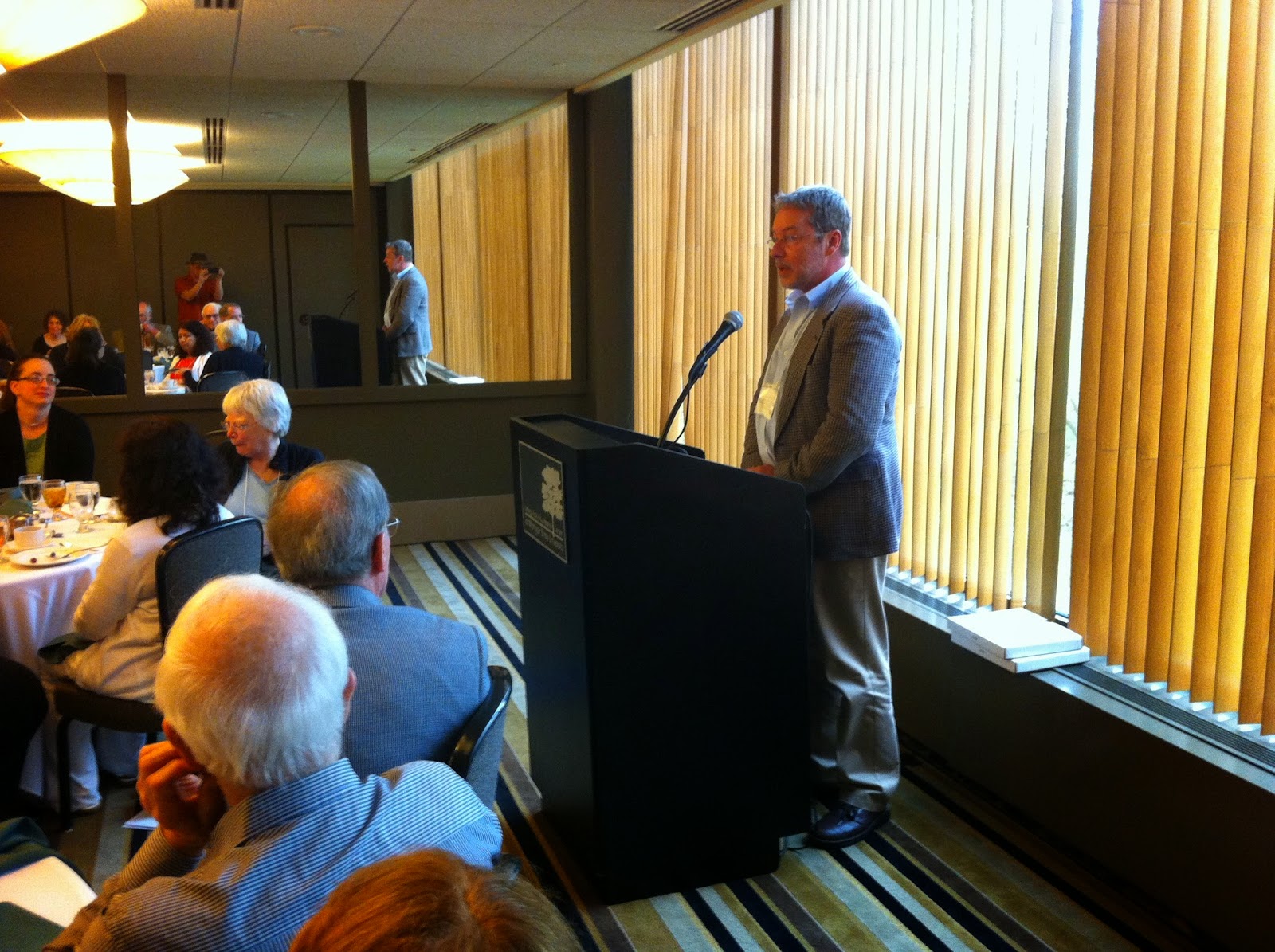They’re writers, critics, editors—mostly they earn their living as college teachers or administrators. Each, or at least it seems that way, has a pet project related to their specialty, the kind of project so narrow in scope that only other scholars will find use of the final product. They’re thoughtful people, kind people, and for many they’re living the life they always imagined for themselves.
A life filled with literature.
The 44nd Annual Meeting for the Study of Midwestern Literature symposium took place in East
Lansing, MI late last week. For the most part, we never left the Kellogg Center, shuffling from one seminar or talk to another.
As part of a criticism panel, I gave a talk called, “Why They’re Remembered,” focusing on the winners and losers of Chicago’s cannon. I wanted to explore the reasons that some writers continue to be part of our civic identity while others get buried. Nelson Algren versus Willard Motley, for example. Or Carl Sandburg versus Meyer Levin. All of the panelist but myself read from prepared and scrubbed texts. I know that’s the convention at academic conferences like this, but I stubbornly believe that when it’s called a panel discussion then you should, well, discuss. So I talked out loud from some notes I’d cobbled together and included the audience in my hunk. I’ll post the complete essay later.
As you would expect, Chicago weaved its way in and out of the various discussions. During my panel alone, Marilyn Atlas read a paper gushing with praise for Peter Orner’s use of the city in his fiction, and Traci Collins gave a paper called, “Oscar Wilde, and Chicago Book Publishers” that included fascinating information about Francis Fisher Browne’s turn-of-the-century bookstore in the Fine Arts Building. Sandra Seaton orchestrated a staged reading of her adaptation of Cyrus Colter’s Black for Dinner, the third in her trilogy of one-acts based on the Chicago Literary Hall of Famer’s short stories. Phillip Greasly talked about Sandburg’s poetry.
 |
| Robert Dunne, 2014 MidAmerica Award Winner |
The Chicago content was scattered amongst interesting topics ranging from Willa Cather to Mark Twain, and presenters highlighted small and big Midwestern destinations along the way. The conference, or meeting, as they like to call it, is a useful way for experts on and from different regions to share their knowledge with one another. That’s the way I took it: a chance to learn about places like Detroit while giving away what I know about Chicago.
~~~~~~~~~~~~~~~~~~~~~~~~~~~~~~~~~~~~~~~~~~~~
Donald G. Evans is the founder and executive director of the Chicago Literary Hall of Fame. He is the author of the novel Good Money After Bad and short story collection An Off-White Christmas, as well as the editor of the anthology Cubbie Blues: 100 Years of Waiting Till Next Year. He is the Chicago editor of the Great Lakes Cultural Review. He serves on the American Writers Museum's Chicago Literary Council and the committee that selects the Harold Washington Literary Award.
donaldgevans@hotmail.com



No comments:
Post a Comment